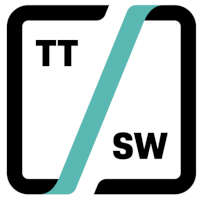With the ongoing digitalization of financial services and the rapid development of technology, financial institutions in the European Union are now faced with a new obligation: the implementation of the DORA (Digital Operational Resilience Act) regulation. This comprehensive legal framework, established by the European Parliament and the Council of the EU, aims to ensure that every financial entity can operate even in the face of major technological disruptions.
What is the DORA Regulation?
DORA (Regulation (EU) 2022/2554 of the European Parliament and the Council), published in the Official Journal of the European Union, introduces uniform standards for digital operational resilience across the financial sector. In practice, this means implementing mechanisms that ensure IT systems are resistant to ICT-related incidents, regardless of whether the source is a system failure, human error, or a cyberattack.
The scope of DORA includes all financial institutions operating within the EU, including:
– Credit institutions
– Electronic money institutions
– Payment institutions
– Alternative investment funds
– Institutions for occupational retirement provision
– Investment firms
– Providers of payment services
And also ICT third-party service providers, including cloud computing service providers.
This regulation on ICT service provision is crucial for ensuring the continuity and security of the entire financial sector.
DORA audit – The first step toward compliance
For many organizations, a DORA compliance audit is not only a regulatory requirement but also an opportunity to strengthen resilience and build trust among business partners.
Main objectives of the audit:
– Assess compliance with DORA requirements
– Identify security gaps
– Check organizational preparedness for serious ICT-related incidents
– Review contracts with external ICT service providers
– Provide recommendations for ICT risk management and digital operational resilience
The audit forms the foundation for successful implementation of the DORA regulation, supporting financial institutions and other sector players in adapting to the regulations adopted by the European Parliament and the Council. It is also a key element in building a robust digital operational resilience system that includes both ICT service providers and third-party vendors, including cloud providers.
Key areas of the DORA audit
ICT eisk management
DORA requires financial institutions to develop and implement a comprehensive ICT risk management strategy, including:
– ICT resource mapping
– Identification of critical processes
– Third-party risk management
TTSW analyzes existing policies and procedures for alignment with DORA requirements.
Incident reporting procedures
According to DORA, any major disruption to operational integrity must be reported to the Financial Supervisory Authority or relevant supervisory authority within 72 hours. The audit covers:
– Readiness for detecting major incidents
– Automation of notifications
– Implementation of internal incident response policies
Reporting major ICT-related incidents is essential for maintaining operational resilience. DORA requires institutions to have effective reporting procedures and full cooperation with the Financial Supervisory Authority.
ICT service provider management
DORA enforces strategic-level management of ICT service providers, including critical vendors and cloud service providers. Our audit focuses on:
– Outsourcing risk assessment
– Contractual regulation of ICT service provision
– Exit strategies and business continuity plans
Effective management of ICT providers is necessary to meet DORA requirements related to third-party oversight. This is especially important for financial institutions that must ensure continuity and control over risks stemming from cooperation with critical vendors.
Testing digital operational resilience
Financial institutions must implement comprehensive testing programs, including:
– Penetration testing
– Failure simulations
– Disruption preparedness assessments
The TTSW audit verifies the existence of testing procedures and their compliance with DORA’s digital resilience standards.
Information sharing and interinstitutional cooperation
DORA encourages information sharing about cyber threats, incidents, and vulnerabilities across the financial sector. The goal is to build a resilient and competitive financial system where threat intelligence is not siloed but serves the entire ecosystem.
Information exchange may involve credit institutions, electronic money institutions, payment institutions, alternative investment funds, and occupational retirement institutions.
As part of the audit, TT-SW examines whether financial entities have procedures enabling secure, timely, and compliant information exchange—considering cybersecurity, data protection, and communication integrity requirements. Such sharing builds trust in business relationships and supports DORA’s core goal: digital operational resilience across the EU financial sector.
Consequences of non-compliance with DORA
Failure to comply with the DORA regulation may result in:
– Financial penalties
– Regulatory sanctions
– Reputational damage and loss of client trust
In extreme cases, financial institutions operating without effective safeguards may lose operational capability, threatening the continuity of payment services.
How TTSW supports DORA compliance
Transition Technologies-Software offers end-to-end support for implementing the DORA regulation, including:
– Conducting a DORA audit for financial entities subject to the regulation
– ICT advisory services
– Optimization of ICT risk management and vendor cooperation
– Integration of ICT incident reporting and response systems
Our services help financial institutions meet DORA’s requirements and strengthen digital operational resilience. We ensure full compliance with obligations under DORA, including ICT risk management and ICT vendor relationships.
Summary
Compliance with the DORA Digital Operational Resilience regulation is now a fundamental requirement for every modern organization in the financial sector. With an audit conducted by TTSW, financial institutions can:
– Verify their level of compliance with DORA
– Strengthen their resilience to major incidents
– Support customer and partner protection
– Gain a competitive edge in an increasingly digital world
Ensure your DORA compliance today. Contact us to schedule an audit and secure the future of your organization.
